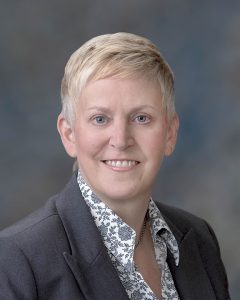
In October, I attended the International Academy of Collaborative Professionals (IACP) 17th Annual Networking and Educational Forum. One of the sessions I attended was Inspiration and Ideas for Creating and Sustaining a Remarkable Collaborative Practice presented by Ron Ousky (a collaborative law pioneer) and his paralegal Megan Yates.
The gist of the presentation was that Collaborative Law is a wonderful process that focuses on interests rather than positions — if clients enter into it with a collaborative mindset. The presentation addressed these important questions:
What do clients need to know to embrace Collaborative Law?
How can clients let go of their positions to reach their highest vision?
How can clients see Collaborative Law as an opportunity, rather than a risk?
Here are some of the things I learned that could help you decide if Collaborative Law could work for you and your spouse and, if you proceed with Collaborative Divorce, how to make it as successful as possible:
- Begin with the end in mind. Think about where you want to finish from the beginning. Visualize what your future looks like after divorce.
- Always focus on the big picture. Again, keep your goals in mind. Try not to get side-tracked by the small issues. Once you know the big picture, you can deal with the details of how to get there.
- Be candid about what you can/can’t bring to the experience. What can you and your spouse each contribute to the process to help it succeed? Sometimes we fail because we push ourselves into things we are not ready for. If you’re not ready, that’s okay.
- Don’t make it about fighting. Arguments don’t change people’s minds. For Collaborative Divorce to be effective, you need to have open, non-defensive discussions with all parties involved, including your spouse and their attorney.
- Trust your instincts and experience. You know yourself and you know your spouse and what will/won’t work for the two of you. Being realistic about that with your attorney will save time and money and reduce stress.
- Be clear. Communicate your knowledge and desires to your attorney, so they can help you make decisions that are best for you and your family.
- Be committed to the process. One of the tenets of Collaborative Law is that if the process is not working there is a requirement of withdrawal by the collaborative attorneys before starting a divorce in court. Your commitment and confidence in your ability to resolve your own case will maximize the possibility of Collaborative Law working for you.
Collaborative Law can help families reach amazing outcomes. When deciding whether Collaborative Divorce is right for you, keep the above points in mind. That way you’ll be prepared to bring your best self to the process.
About the Blogger:

Jane Clayton is a partner at Vafiades, Brountas & Kominsky, LLP. Jane focuses her practice on all aspects of Family Law including Collaborative Law. Admitted to practice in 1988 both in Maine and before the U.S. District Court, District of Maine, Jane is a member of the Maine State and Penobscot Bar Associations. She is currently a Board Member of Maine Collaborative Law Alliance. She is also a member of the Family Law Section of the Maine State Bar Association. Jane was previously the Chair of the Fee Arbitration Commission, Chair of Fee Arbitration Panel IV, Chair of the Penobscot County Law Library Committee, a member of the State Court Library Committee, a Board Member of Equality Maine Foundation, a Board Member of Bangor Area Visiting Nurses/Hospice of Eastern Maine, a Board Member of Pine Tree Legal Assistance and a Board Member of Maine Association of Mediators.
Jane was born in Harrisburg, Pennsylvania in 1961, and grew up in the suburbs of Philadelphia. Jane earned a B.A. (with high distinction) in Political Science from the University of Maine in 1983. She received her J.D. from the Villanova University School of Law in 1986. She moved to Maine in 1986 and currently lives in Veazie with her wife, dog and cat. In her time away from the office she enjoys creating stained glass panels, photography, movies, reading, and spending time with family and friends.

